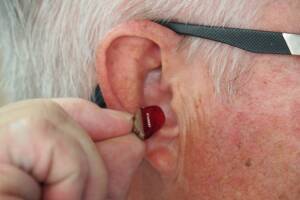Waterproof Hearing Aids: Fact or Fiction
Hearing aids are incredible inventions that give millions of people worldwide the ability to hear more clearly. But just like smartphones, tablets, and computers, many hearing aids do not react well to water. This is why more and more brands are developing waterproof and water-resistant models. But are waterproof hearing aids fully waterproof, and how much protection do water-resistant hearing aids provide? These questions and more are answered below.
Waterproof Hearing Aids Do They Exist?
Unfortunately, no hearing aid is 100% waterproof. Until technology advances further, resisting water is the best option you can find on the market. Most hearing aids referred to as water-resistant, waterproof, moisture resistant, or showerproof offer some sort of water protection. While these hearing aids can prevent most water from entering, they cannot keep it out completely, especially if you’re in the shower or going for a swim.
What’s the Difference Between Waterproof and Water-resistant Hearing Aids?
- Water-resistant hearing aids: Many people use these terms interchangeably, but it’s essential to know the difference between water-resistant and waterproof hearing aids. Water-resistant hearing aids offer some protection from water damage, but they cannot prevent water from entering the device. They are also not designed to remain submerged in water for an extended period. Some manufacturers use the terms “showerproof,” “water-resistant,” or “moisture resistant” as synonyms for “waterproof.”
- Waterproof hearing aids: True waterproof hearing aids are designed to withstand immersion in water over a long period of time. Waterproof refers to a “higher degree” of water protection than a material or object labeled “water-resistant.”
Understanding Water-resistance and IP Ratings
According to the IEC, hearing aids are rated from 1 – 8 to calculate how waterproof and dustproof they are. The first value of 1 – 7 indicates protection against debris such as sand or dust. The second value is between 1 and 9. It shows how resistant an electrical component is to moisture. If a device has an IP67 rating, it is protected from dust or sand and can function underwater for 30 minutes if submerged three meters deep. A lower rating means the device cannot survive submersion. So before you buy a pair of hearing aids, check with your audiologist about IP protection.
How to Protect Your Hearing Aids From Water
Use a drying cabinet or dehumidifier at night to protect your hearing aids from water damage. It would help if you also opened the battery compartment when you are not using the hearing aids to let them air out. Additionally, using sweatbands to prevent sweat from getting into your hearing aids and causing damage while working out is necessary to keep your devices safe. These affordable accessories can be found online and at most athletic stores.
Talk to the Experts at Associated Hearing Professionals
Not sure what set of hearing aids are right for you? Ask an audiologist at Associated Hearing Professionals. Our team of experienced doctors can help you find the right pair of hearing aids to fit your budget, lifestyle, and needs. Contact us today at 314-725-2686 for all your hearing needs.

